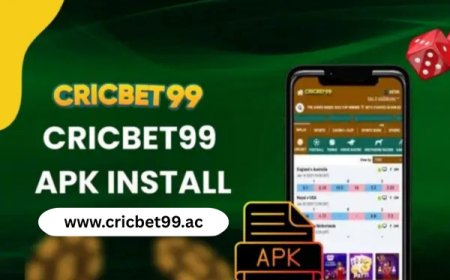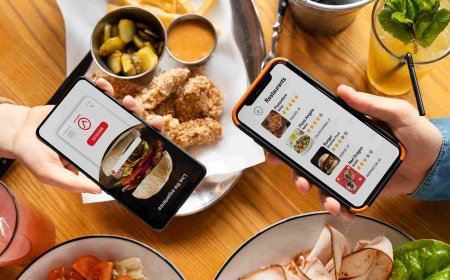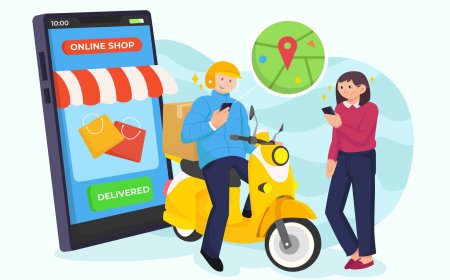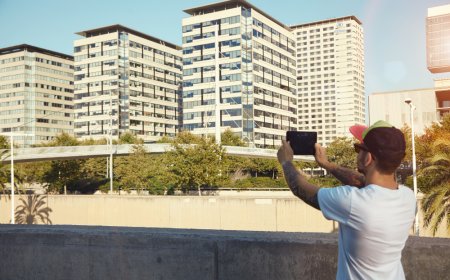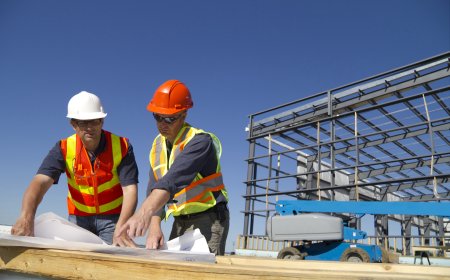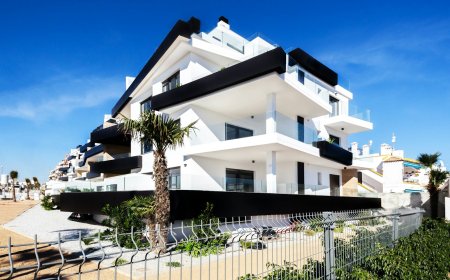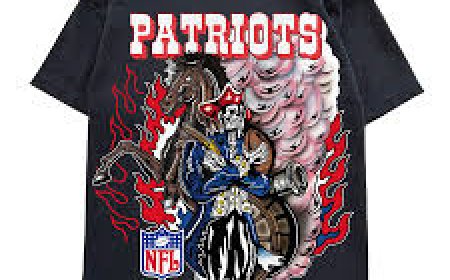How to Network at Phoenix Events
How to Network at Phoenix Events Phoenix, Arizona, is more than just a desert metropolis—it’s a thriving hub of innovation, entrepreneurship, and professional growth. From tech startups in downtown Phoenix to aerospace firms in the West Valley, and from healthcare conferences at the Phoenix Convention Center to food and beverage expos in Scottsdale, the city hosts a dynamic calendar of industry-sp
How to Network at Phoenix Events
Phoenix, Arizona, is more than just a desert metropolisits a thriving hub of innovation, entrepreneurship, and professional growth. From tech startups in downtown Phoenix to aerospace firms in the West Valley, and from healthcare conferences at the Phoenix Convention Center to food and beverage expos in Scottsdale, the city hosts a dynamic calendar of industry-specific events year-round. But attending these events is only half the battle. The real value lies in what you do after you walk through the door: building meaningful professional connections that lead to partnerships, job opportunities, mentorships, and long-term business growth.
Networking at Phoenix events isnt about collecting business cards or posting selfies with speakers. Its about cultivating authentic relationships in a city where community and personal rapport still hold significant weight. Whether youre a newcomer to the Valley, a seasoned professional looking to expand your influence, or an entrepreneur seeking collaborators, mastering the art of networking in Phoenix can dramatically accelerate your career trajectory.
This guide provides a comprehensive, step-by-step roadmap to help you network effectively at Phoenix eventsbacked by local insights, proven strategies, and real-world examples. Youll learn how to prepare strategically, engage meaningfully, follow up intelligently, and turn casual encounters into lasting professional relationshipsall within the unique cultural and economic landscape of the Phoenix metro area.
Step-by-Step Guide
1. Define Your Networking Goals Before You Attend
Before you even register for an event, ask yourself: Why am I here? Vague intentions like meet people or get noticed rarely yield results. Instead, set specific, measurable goals. Are you looking to connect with three potential clients in the renewable energy sector? Do you want to find a mentor in digital marketing? Are you scouting talent for your startup?
Write down your top three objectives and keep them visibleon your phone, in your notebook, or as a sticky note on your laptop. This clarity will guide your conversations and prevent you from getting sidetracked by superficial interactions. For example, if youre attending the Arizona Tech Summit, your goal might be: Connect with two founders of early-stage SaaS companies and exchange LinkedIn profiles.
Phoenix events often attract professionals from specific industrieshealthcare at the Arizona Medical Association Conference, real estate at the Greater Phoenix Economic Council gatherings, or education at ASUs innovation forums. Tailor your goals to the events theme. Research the attendee list if available, and identify 510 people youd like to meet. This targeted approach transforms random mingling into purposeful engagement.
2. Research the Event and Attendees
Phoenix has a tight-knit professional community. Many attendees know each other, and reputations matter. Dont show up unprepared. Spend at least 30 minutes before the event researching:
- The events official website and agenda
- The keynote speakers and panelists
- Organizers and sponsors
- Attendee lists (if published on Eventbrite, LinkedIn, or the event app)
Use LinkedIn to search for attendees who work in your target industry or company. Look at their profiles: What do they do? What are their interests? Have they posted about the event? This intel helps you craft personalized opening lines. For instance, instead of saying, Hi, Im John, try: Hi, I saw your post about expanding into the Tempe healthcare tech marketIm working on a similar initiative and would love to hear how youre navigating regulatory hurdles.
Many Phoenix events are hosted by local organizations like the Phoenix Chamber of Commerce, Arizona Commerce Authority, or ASUs W. P. Carey School of Business. Familiarize yourself with their mission statements and recent initiatives. This context helps you align your message with the values of the community.
3. Prepare Your Elevator Pitch (Phoenix Style)
Your elevator pitch isnt a sales scriptits a conversation starter. In Phoenix, where relationships are built on trust and authenticity, your pitch should reflect your personality, not your resume. Keep it under 30 seconds and include:
- Who you are (name and role)
- What you do (in plain language)
- What youre looking for (specifically)
Example: Im Maria, a sustainability consultant helping local restaurants reduce waste and cut costs. Im currently working with three Phoenix-based cafes to implement composting programsand Im looking to connect with other green-focused small business owners in the Valley.
Avoid jargon. Phoenix professionals appreciate clarity and humility. Dont say, Im a disruptive thought leader in blockchain logistics. Say, I help small logistics companies track shipments more efficiently using simple digital tools.
Practice your pitch until it sounds naturalnot rehearsed. Record yourself on your phone and listen back. Does it sound like you? If not, tweak it. Your authenticity is your greatest asset in Phoenixs relationship-driven culture.
4. Arrive Early and Engage with Hosts
Arriving early is one of the most underrated networking strategies. The first 1520 minutes of an event are the most valuable. Crowds are small, energy is high, and people are more open to conversation.
Make a point to greet the event hosts, organizers, or volunteers. They know everyone. They can introduce you to key attendees and often have insider knowledge about whos worth connecting with. A simple, Hi, Im really excited to be herewhats been the most interesting conversation youve had so far? opens the door to a genuine exchange.
In Phoenix, hospitality is part of the culture. Compliment the venue, the food, the organization. People appreciate recognition. This setup is incredibleIve been to a lot of events, but the lighting and seating here really encourage conversation. Small compliments build rapport quickly.
5. Master the Art of the Open-Ended Question
People love talking about themselves. Your job is to ask questions that invite stories, not yes/no answers. Avoid: Do you work in tech? Instead, ask: What brought you to Phoenix, and whats been the most surprising part of building your business here?
Here are 5 powerful open-ended questions tailored for Phoenix events:
- Whats one challenge youre tackling right now that you didnt expect when you started?
- Whats something happening in the Phoenix business scene that excites you right now?
- Whos someone youve met here recently who inspired you?
- If you could change one thing about how our industry operates in Arizona, what would it be?
- Whats a local resource or event youd recommend to someone new in the Valley?
Listen actively. Nod. Make eye contact. Dont plan your next sentence while theyre talking. In Phoenix, showing genuine interest is more valuable than sounding smart.
6. Leverage the Local Culture: Be Warm, Not Pushy
Phoenix has a distinct social rhythm. People are friendly, but theyre not easily sold. Aggressive self-promotion or hard-selling during networking events will backfire. Instead, adopt the Valley hospitality mindset: be welcoming, generous, and patient.
Offer value before asking for anything. Share a useful article. Introduce two people who should know each other. Recommend a great local coffee shop or hiking trail. These small gestures build goodwill that lasts far longer than a business card exchange.
Also, be mindful of time. Phoenix professionals are busy. If someone seems pressed for time, dont monopolize them. Say, I know youre probably in a rushI just wanted to say it was great meeting you. Can I connect with you on LinkedIn? Then move on gracefully.
7. Exchange Contact Information Strategically
Dont hand out business cards like candy. Wait for a natural momentafter a meaningful conversation, when the other person says, We should stay in touch. Then say: Id love that. Would you mind if I sent you a LinkedIn request?
Use LinkedIn as your primary tool. Its widely used in Phoenixs professional community. Avoid asking for phone numbers or personal emails early on. If you must exchange physical cards, make sure yours are clean, professional, and include your LinkedIn URL and website (if applicable).
Pro tip: Write a quick personal note on the back of the card or in your phone notes immediately after the conversation. Met at AZ Tech Summitinterested in AI in education. Followed up on his project at Mesa High. This prevents you from forgetting context later.
8. Follow Up Within 2448 Hours
Most people dont follow up. Dont be most people.
Within two days of the event, send a personalized message to each person you connected with. Reference something specific from your conversation:
Hi Sarah, it was great chatting with you about sustainable irrigation solutions at the Arizona AgTech Forum. I really enjoyed your point about water reuse in Maricopa CountyI came across this report from the University of Arizona on drought-resistant crops and thought you might find it useful. Let me know if youd like me to share it!
Use LinkedIn messages or emailwhichever feels more natural. Avoid generic templates. Great meeting you! is forgettable. I appreciated your insight on Phoenixs housing affordability challenges and would love to hear more about your work with the Urban Land Institute shows you were truly listening.
If you promised to send a resource, article, or introductiondo it immediately. Reliability builds trust. In Phoenixs close-knit networks, your reputation for following through matters more than your title.
9. Nurture Relationships Beyond the Event
Networking doesnt end when you leave the venue. The real work begins after the event. Stay connected by:
- Liking or commenting on their LinkedIn posts
- Sharing relevant articles or events they might find interesting
- Tagging them in Phoenix-specific content (This new food hall in Tempe reminded me of our chat about local food startups!)
- Inviting them to future events youre attending
Consider sending a short handwritten note if you connected deeply. In a digital age, a physical note stands out. Many Phoenix professionals still appreciate this old-school gesture.
Also, join local professional groups on Facebook or Meetuplike Phoenix Tech Entrepreneurs or Arizona Women in Business. Stay active. Share your wins, ask for advice, and support others. Consistent, low-pressure engagement keeps you top of mind.
10. Track Your Progress and Reflect
Keep a simple log: date, event, name, connection, outcome. After each event, ask yourself:
- Did I meet my goals?
- Who did I connect with that I should follow up with?
- What worked well? What didnt?
Review your log monthly. Are you building a network of 10 strong connectionsor 100 superficial ones? Quality over quantity is the Phoenix way.
Use this reflection to refine your approach. Maybe you realize youre better at connecting at small roundtables than large expos. Or perhaps you learn that morning events yield more engaged attendees than evening mixers. Adjust accordingly.
Best Practices
Be Consistent, Not Just Occasional
Networking isnt a one-time activity. Phoenixs professional ecosystem thrives on continuity. Attend at least one event per montheven if its small. Regular presence builds familiarity. People begin to recognize you, associate you with your expertise, and start referring you to others.
Focus on Giving, Not Taking
The most successful networkers in Phoenix are givers. They share leads, make introductions, offer feedback, and celebrate others wins. If you want to be remembered, be the person who helps without expecting anything in return. Over time, generosity compounds into trustand trust leads to opportunity.
Use Local References to Build Rapport
Phoenix has unique landmarks, cultural touchpoints, and inside jokes. Mentioning the Desert Botanical Garden, the Heard Museum, the Super Bowl LVII legacy, or the Arizona heat can instantly create connection. I know youre probably tired of the 110-degree daysI just got back from hiking Camelback and needed a cold shower!
These small, culturally relevant comments signal that youre not just passing throughyoure invested in the Valley.
Respect Time and Boundaries
Phoenix professionals value efficiency. Dont linger too long. Dont interrupt conversations. Dont show up uninvited to someones office after an event. If someone says, Im swamped this week, respect it. A polite, No problemIll circle back next month, shows maturity.
Dress Appropriately for the Occasion
Phoenix events vary widely in formality. A tech pitch night in downtown Phoenix might call for business casual. A chamber of commerce luncheon may require a blazer. A nonprofit gala might demand cocktail attire.
When in doubt, dress one level above the expected norm. It shows respect. And remember: in the desert, comfort matters. Choose breathable fabrics, avoid heavy suits, and wear comfortable shoes. Youll be standing and walking a lot.
Be Inclusive and Culturally Aware
Phoenix is one of the most diverse cities in the Southwest. Youll meet professionals from Mexican-American, Native American, South Asian, and African-American communities, among others. Be respectful of cultural differences in communication styles, personal space, and traditions.
Simple gesturespronouncing names correctly, asking about cultural events like the Phoenix Indian Market, or acknowledging Indigenous land acknowledgmentssignal respect and awareness.
Use Silence Strategically
Dont rush to fill every pause. Silence gives the other person space to thinkand often leads to deeper insights. In Phoenix, where conversation is valued over speed, a thoughtful pause can be more powerful than a quick reply.
Stay Off Your Phone
Nothing kills rapport faster than checking your phone mid-conversation. Put it away. If you must use it, excuse yourself: Im expecting a quick text from my teamIll be right back.
Follow Event Etiquette
Dont monopolize speakers during Q&A. Dont interrupt. Dont pitch your product during a networking break. Dont take photos of people without permission. These small missteps can damage your reputation faster than you think in a tight-knit community like Phoenix.
Know When to Walk Away
Not every conversation will be fruitful. If someone is disengaged, distracted, or clearly uninterested, gracefully exit. It was great meeting youIm going to grab a drink before the next panel. Hope our paths cross again!
There are always more people to meet.
Tools and Resources
LinkedIn: Your Digital Business Card
LinkedIn is non-negotiable in Phoenixs professional scene. Optimize your profile with a clear headshot, a compelling headline (not Seeking Opportunities), and a summary that highlights your value. Use keywords like Phoenix, Arizona, tech, healthcare, or sustainability so you show up in local searches.
Join Phoenix-specific LinkedIn groups: Phoenix Entrepreneurs Network, Arizona Marketing Professionals, Arizona Tech Jobs. Participate in discussions weekly.
Eventbrite and Meetup: Find the Right Events
Use Eventbrite to search for events in Phoenix by category: Business, Tech, Networking. Filter by date and location. Set up alerts for recurring events like Phoenix Startup Happy Hour or ASU Innovation Forum.
Meetup.com hosts dozens of local professional groups, from Phoenix Women in Finance to Arizona Real Estate Investors. Many of these are free or low-cost and offer consistent, high-quality networking.
Phoenix Chamber of Commerce Events
The Phoenix Chamber hosts monthly mixers, leadership luncheons, and policy roundtables. Membership is not required to attend many events, but joining gives you access to exclusive networking opportunities and introductions to top local leaders.
ASUs Innovation Ecosystem
Arizona State University is a powerhouse for networking in Phoenix. Attend events at the W. P. Carey School of Business, the Ira A. Fulton Schools of Engineering, or the Design School. Many events are open to the public and attract entrepreneurs, investors, and researchers.
Local Co-Working Spaces
Spaces like The Yard, The Foundry, and The Office at Scottsdale offer free or low-cost networking events, workshops, and happy hours. Even if youre not a member, show up to a public event. Youll meet freelancers, founders, and remote workersall hungry to connect.
Business Journals and Local Media
Subscribe to the Phoenix Business Journal and Arizona Republic business sections. They list upcoming events, profiles of local leaders, and industry trends. Reading them keeps you informed and gives you conversation starters.
Calendar Apps and Reminders
Use Google Calendar or Apple Calendar to block time for networking. Add events with reminders two days before. Schedule follow-ups for 2448 hours after each event. Treat networking like a business meetingbecause it is.
CRM Tools for Small Networks
Even if youre not a salesperson, use a simple CRM to track connections. Tools like Notion, Airtable, or even a Google Sheet work. Include: Name, Company, Event, Notes, Follow-Up Date. This prevents you from losing valuable relationships in the noise.
Books and Podcasts for Local Insight
Read The Phoenix Effect by local author James A. Kline for context on the citys economic evolution. Listen to the Arizona Business Insider podcast for interviews with Phoenix founders. These resources help you speak the local language.
Free Networking Workshops
Many Phoenix libraries, including the Phoenix Public Library system, offer free workshops on networking, personal branding, and LinkedIn optimization. These are often led by local career coaches and are highly underrated resources.
Real Examples
Example 1: Maria, a Sustainability Consultant
Maria attended the Arizona Green Business Expo with one goal: meet three restaurant owners interested in waste reduction. She arrived early, spoke with the organizers, and learned that a local caf chain was launching a composting pilot. She introduced herself to the founder, asked thoughtful questions about supply chain challenges, and shared a free guide shed created on local composting regulations.
She followed up within 24 hours with the guide and a LinkedIn request. Two weeks later, the caf invited her to present to their entire team. Within three months, she signed her first three clientsall through that one event.
Example 2: Jamal, a Newcomer to Phoenix
Jamal moved to Phoenix for a new job but felt isolated. He decided to attend one networking event per month. He started with a small Meetup group for remote workers. He didnt pitch his jobhe asked others about their journeys to Phoenix. He shared stories about his hometown in Texas and asked about local hiking trails.
He became a regular. He started commenting on peoples LinkedIn posts. He was invited to a private dinner hosted by a local nonprofit founder. That connection led to a volunteer role, which led to a board position, which led to a speaking opportunity at the Phoenix Nonprofit Summit.
Today, Jamal is considered a connector in Phoenixs professional communitynot because he sought status, but because he showed up consistently and authentically.
Example 3: Lina, a Tech Founder
Lina was pitching her AI-driven logistics platform at the Arizona Tech Summit. She noticed a man listening intently during her talk. Afterward, she didnt ask for fundingshe asked, Whats the biggest logistics headache youve faced in Arizona?
He turned out to be the COO of a regional distribution company. They talked for 20 minutes about Arizonas highway congestion and warehouse shortages. She sent him a case study the next day. Six weeks later, he invited her to present to his leadership team. Theyre now piloting her software.
Lina didnt network to raise money. She networked to solve a problemand thats what resonated.
Example 4: The Power of the Handwritten Note
At a Phoenix Chamber luncheon, a young attorney named Daniel met a senior partner at a top law firm. They discussed Arizonas evolving real estate laws. Daniel didnt ask for a job. He thanked him for his insight and sent a handwritten note two days later: Thank you for sharing your perspective on the new zoning codes. Ive already applied your advice to my clients case. Id welcome the chance to hear more when you have time.
The partner kept the note on his desk. Three months later, he referred Daniel to a client. Daniel didnt ask for the referralhe earned it through thoughtfulness and follow-through.
FAQs
Whats the best time of year to network in Phoenix?
Spring (MarchMay) and fall (SeptemberNovember) are ideal. Summer is hot, and many professionals take time off. Winter events are plentiful but often holiday-focused. Avoid July and August for serious networkingunless its a conference.
Do I need to join a professional organization to network effectively?
Nobut it helps. Organizations like the Phoenix Chamber, Arizona Technology Council, or local chambers of commerce offer structure, credibility, and access to curated events. But you can build a strong network through Meetups, free workshops, and consistent event attendance without membership.
What if Im introverted?
Many successful networkers in Phoenix are introverts. You dont need to be the loudest person in the room. Focus on deep, one-on-one conversations. Arrive early. Listen more. Ask thoughtful questions. Quality beats quantity.
How do I network if Im not in tech or business?
Phoenix has events for educators, artists, nonprofit leaders, healthcare workers, and creatives. Look for events hosted by the Phoenix Art Museum, Arizona Humanities, or the Arizona Teachers Association. The principles of networkingauthenticity, follow-up, generosityapply to every field.
Is it okay to network with people on social media before the event?
Yesespecially on LinkedIn. Send a short, polite message: Hi, Ill be at the Arizona Health Innovation Forum next week and noticed your work on telehealth access. Would love to connect there if youre open. Its not pushyits thoughtful.
What if I forget someones name after meeting them?
It happens. Say, Im so sorryIm terrible with names, but I really enjoyed our conversation about [topic]. Can I get your LinkedIn so I dont forget? Most people will appreciate the honesty.
How many people should I aim to meet at one event?
Three to five meaningful connections is a great outcome. Dont chase numbers. One strong relationship is worth ten superficial ones.
Can I network effectively at virtual Phoenix events?
Yesbut its harder. Use breakout rooms, ask questions during Q&A, and follow up via LinkedIn. However, in-person events in Phoenix still offer the highest return on investment for relationship-building.
Conclusion
Networking at Phoenix events isnt about transactional exchanges or collecting contacts. Its about becoming part of a community that values trust, authenticity, and long-term collaboration. The Valley doesnt reward the loudest or the most aggressiveit rewards those who show up consistently, listen deeply, and give generously.
Whether youre a recent transplant, a seasoned professional, or an entrepreneur building something new, the opportunities in Phoenix are vastbut theyre not automatic. Theyre earned through intentionality, cultural awareness, and the quiet discipline of following up.
Start small. Attend one event. Set one goal. Say one meaningful thing. Follow up with one person. Do it again next month. Over time, these small actions compound into relationships that open doors you didnt even know existed.
Phoenix isnt just a cityits a network. And the people who thrive here arent the ones who shout the loudest. Theyre the ones who show up, stay curious, and remember that behind every business card is a human being with a story.
Your story is waiting to be written. Start now.















